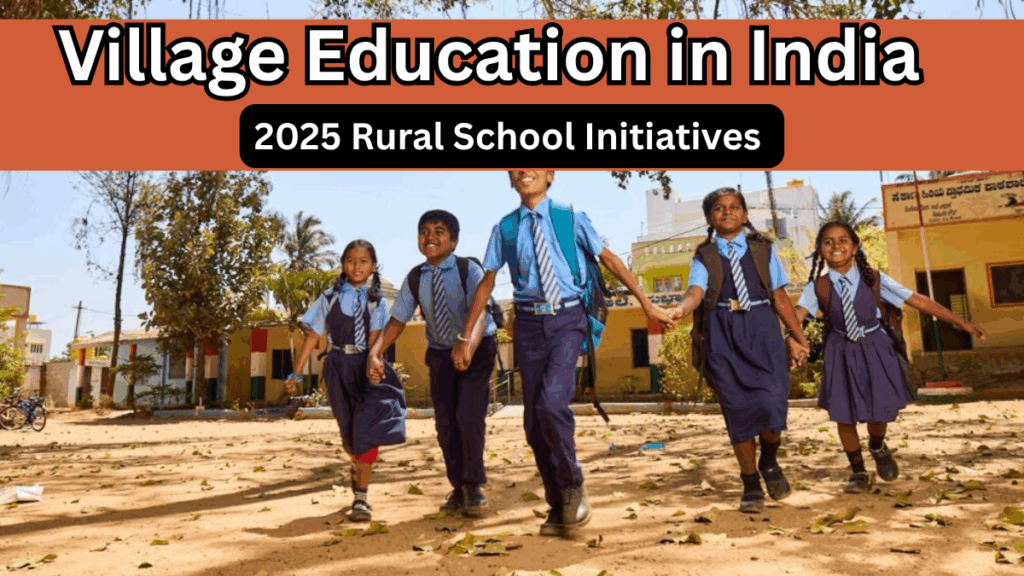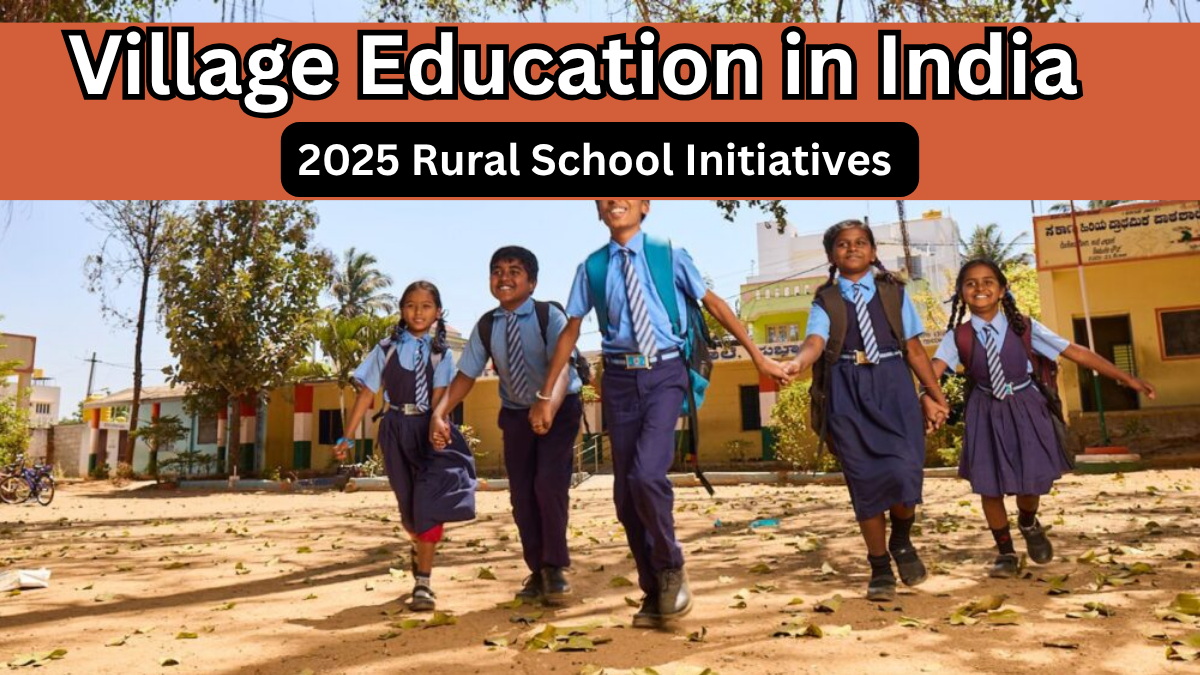Education has always been the backbone of progress, and in rural India, it is more than just literacy – it’s the hope for a better future. With the government and several organizations focusing on improving village education in India, 2025 has brought some transformative changes to rural learning spaces. These initiatives are not only improving infrastructure but also reshaping how children in villages experience education.

Why Is Village Education in India So Important?
Education in villages impacts more than just individual students – it uplifts entire communities. A well-educated rural population can:
-
Break the cycle of poverty
-
Empower youth with job-ready skills
-
Improve health and social awareness
-
Reduce migration by creating opportunities within villages
The rural school initiatives in 2025 aim to make education accessible, modern, and skill-oriented.
Key Rural School Initiatives in 2025
Here’s what’s changing in village education in India this year:
Digital Learning Hubs in Villages
-
Smart classrooms equipped with tablets and projectors
-
Free access to e-learning platforms in local languages
-
Digital literacy programs for students and teachers
Skill Development Alongside Curriculum
-
Vocational training in agriculture, crafts, and small business management
-
Career guidance sessions for rural youth
-
Partnerships with NGOs to provide job-linked courses
Mid-Day Meal Expansion
-
Nutritionally balanced meals to improve attendance
-
Local sourcing of ingredients to support village farmers
-
Special nutrition plans for girls and younger children
Teacher Training & Incentives
-
Regular training workshops for rural educators
-
Performance-based incentives to retain skilled teachers
-
Accommodation support for teachers posted in remote areas
Community Participation
-
Village education committees for better school management
-
Parent-teacher meetings to involve families in student progress
-
Local volunteers as part-time educators for extracurricular activities
Government Schemes Supporting Rural Education
| Scheme | Focus Area | Impact |
|---|---|---|
| Samagra Shiksha Abhiyan | Holistic school development | Better infrastructure & resources |
| PM e-Vidya | Digital education | Access to online classes |
| Kasturba Gandhi Balika Vidyalaya | Girl child education | Residential schooling for girls |
| Mid-Day Meal Scheme | Nutrition | Improved attendance & health |
Challenges That Still Exist
While progress is evident, village education in India still faces:
-
Lack of consistent internet connectivity
-
Shortage of trained teachers in remote areas
-
Early dropout rates due to economic pressures
-
Need for localized curriculum that connects with rural realities
What Lies Ahead?
The vision for rural school initiatives in the coming years is clear – to make rural schools centers of learning, skill-building, and community growth. With digital tools, skilled educators, and active community participation, the future of village education looks promising.
FAQs
Q1. What are the main challenges in improving village education in India?
A: Limited resources, poor infrastructure, lack of trained teachers, and economic challenges that force children to drop out remain key hurdles.
Q2. How are digital initiatives helping rural schools?
A: Digital classrooms and e-learning platforms are making quality education accessible, even in remote areas.
Q3. Are there special programs for girl child education?
A: Yes, initiatives like Kasturba Gandhi Balika Vidyalaya provide residential schooling for girls to reduce dropout rates.
Q4. How can communities contribute to rural school development?
A: By participating in school committees, supporting extracurricular activities, and ensuring regular attendance of children.
Click here to learn more
